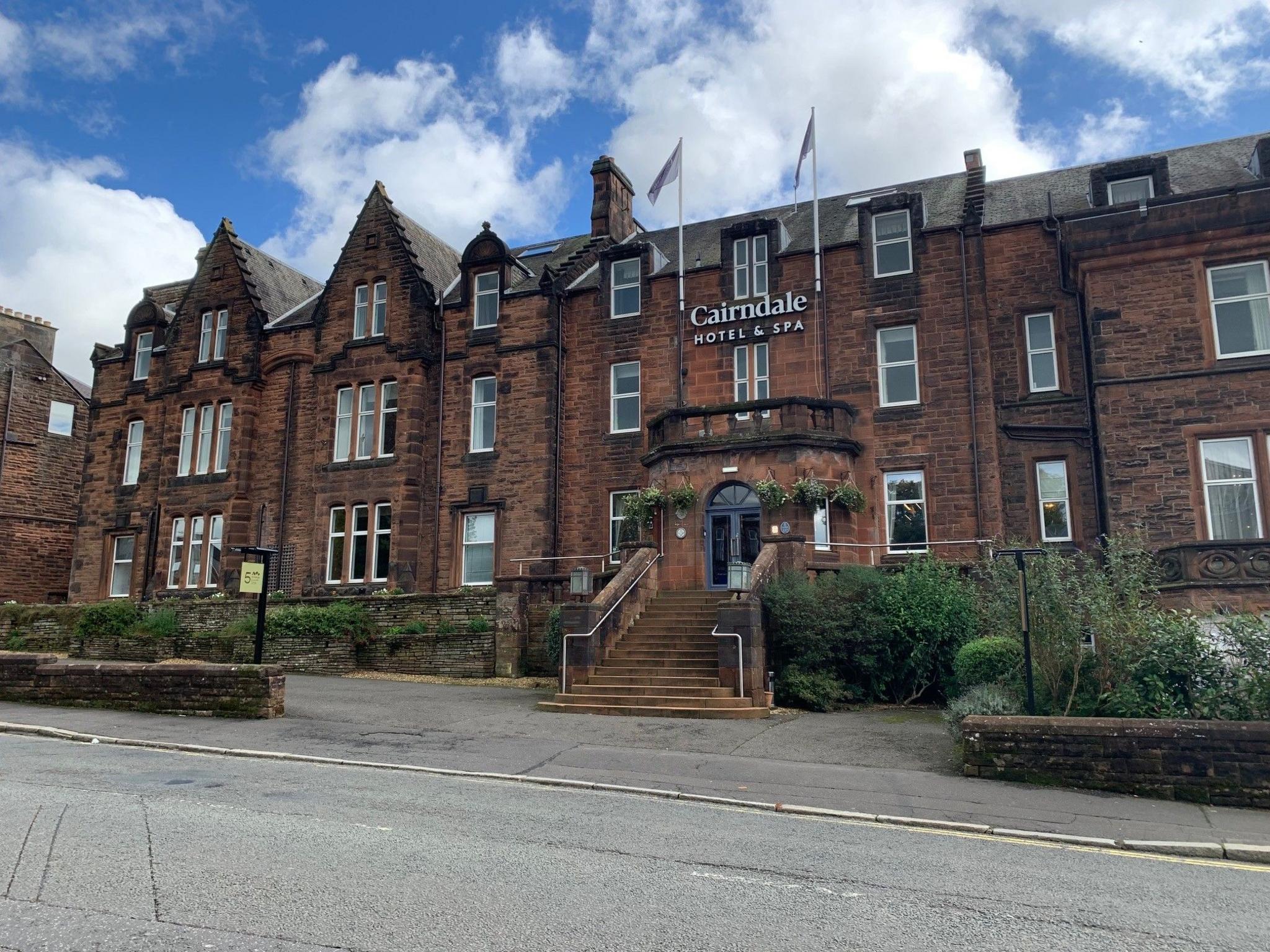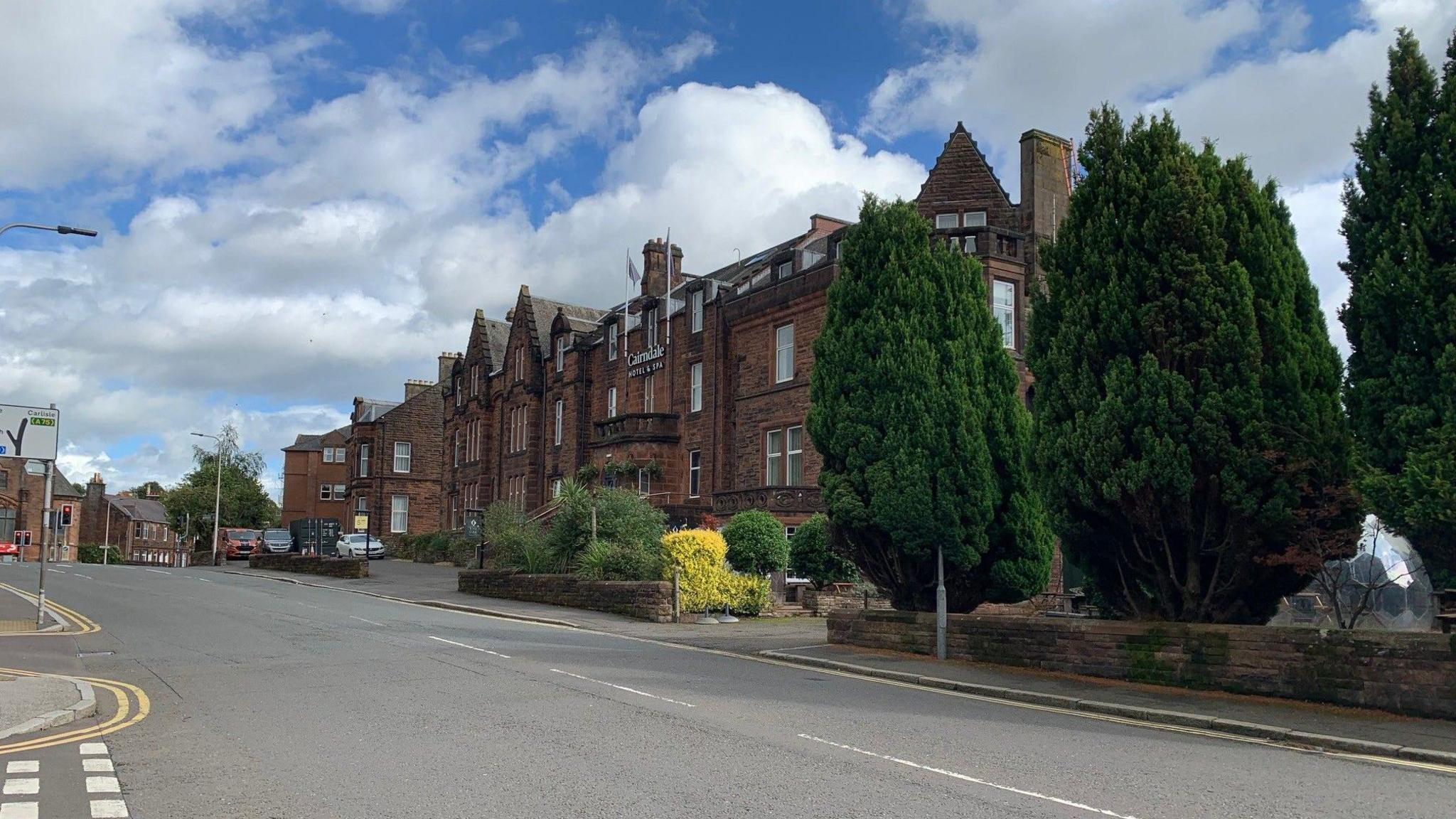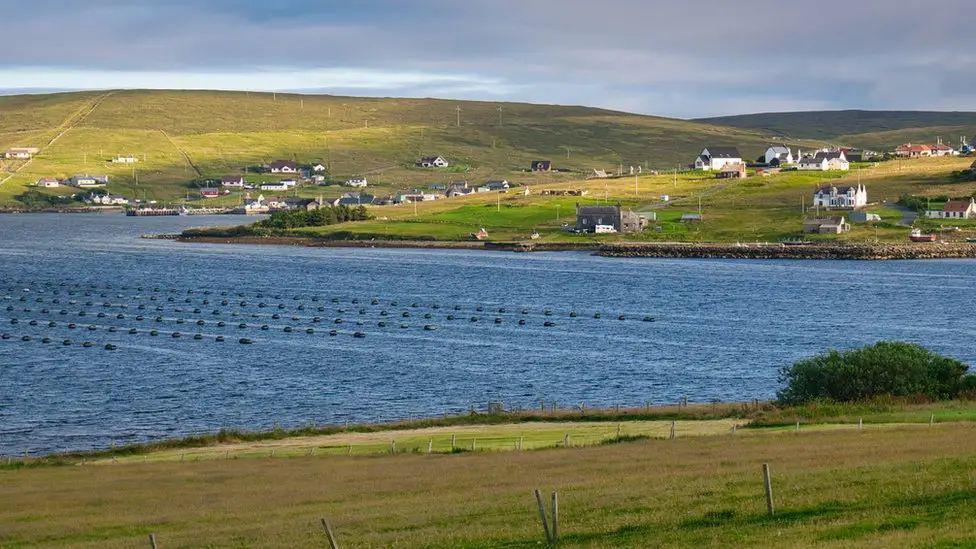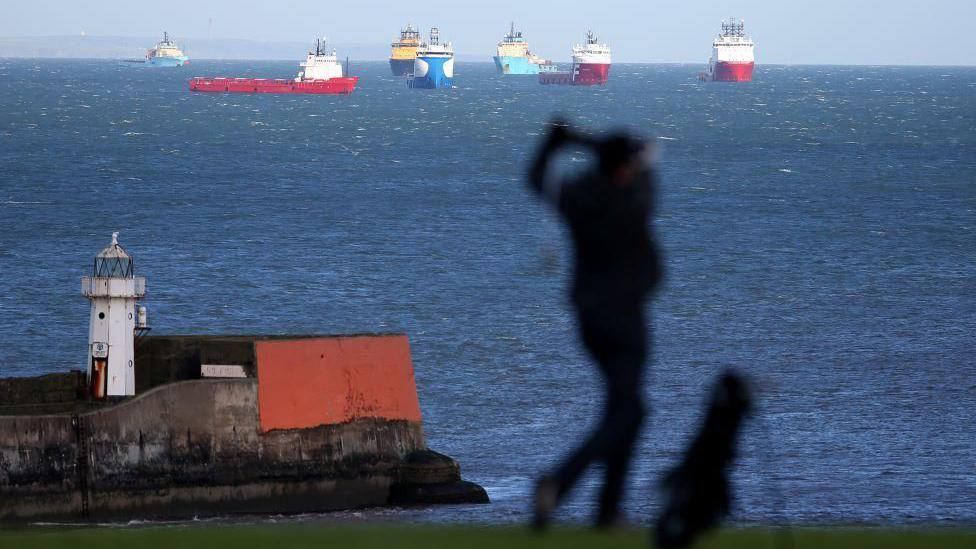Fears tourism levy would make region too expensive

Matthew Wallace Jr says Dumfries and Galloway does not need a visitor levy
- Published
A director of one of southern Scotland's best-known hotels has said proposals to introduce a visitor levy would make visiting Dumfries and Galloway "needlessly more expensive".
The local authority is currently exploring the possibility of following other parts of the country and bringing in the so-called tourist tax which would then be invested in improving the area as a destination.
Matthew Wallace Jr - director of the Cairndale Hotel and Spa in Dumfries - said he was "strongly against" any such move.
A council statement said it would take on board any feedback received and no decision would be made until a full report was brought back next year.

The Cairndale Hotel and Spa in Dumfries employs about 120 staff
Earlier this year, councillors in Edinburgh and Glasgow approved a 5% charge on overnight stays in hotels, hostels, guest houses, B&Bs and self-catering accommodation.
In August, councillors backed the introduction of a 7% visitor levy for Aberdeen.
Councillors in the Shetland Islands recently decided against the move but Dumfries and Galloway Council (DGC) is one of a number of authorities still weighing up the option.
It agreed earlier this month to take steps to explore the potential of the levy and promised widespread consultation.
Mr Wallace - whose business employs about 120 staff - said the charge was not suitable for the south-west of Scotland.
Get in touch
What do you think of plans for a visitor levy in Dumfries and Galloway?
"There is no over-tourism problem in Dumfries and Galloway," he said.
He said supporters often cited cities like Barcelona and Venice and suggested that a "nominal fee" did not put people off.
However, he said they benefitted from lower rates of VAT than the UK which made the levy "more palatable".
"This levy is just a further increase in taxation and makes our region needlessly more expensive," he said.
"Once a tourism levy is in place, one thing is certain. It will be here to stay and the rate or percentage will only ever increase.
"Business rates and VAT - paid by guests and business - should be ample funding for local government without hammering struggling businesses in the region with an additional tax."

Mr Wallace said the hospitality industry was already under pressure without the so-called tourist tax
He said he believed it would not be a popular move.
"The effect will be quite simple," he said.
"The cost of accommodation across the board will increase and Dumfries and Galloway becomes a more expensive destination to visit.
"DGC should be directing efforts to encourage growth in tourism not introduce a tax that, from recent social media posts, nobody would seem to support."
He urged the local authority to "fully engage" with the sector.
"We are already doing all that we can to attract business to our region," he said, adding that the council should look at other avenues for revenue generation.
"The levy is not welcome in Dumfries and Galloway and by refusing to implement a levy, DGC has an opportunity to show the rest of Scotland, and further afield, that south west Scotland is open for business and welcomes tourism."
A statement from the council said a meeting on 2 September had agreed to begin an "early engagement exercise" on a potential visitor levy.
It said this aligned with best practice set out in Scottish government guidance.
"We recognise that this is a topic of interest to many, and the early engagement process is intended to ensure a broad range of local voices are heard," it added.
"This feedback will help inform the process and support elected members in considering any future steps.
"A further report will be brought to members in spring 2026, detailing the feedback received and outlining potential next steps.
"No decisions will be taken until that point."
Related topics
- Published15 September

- Published6 August
